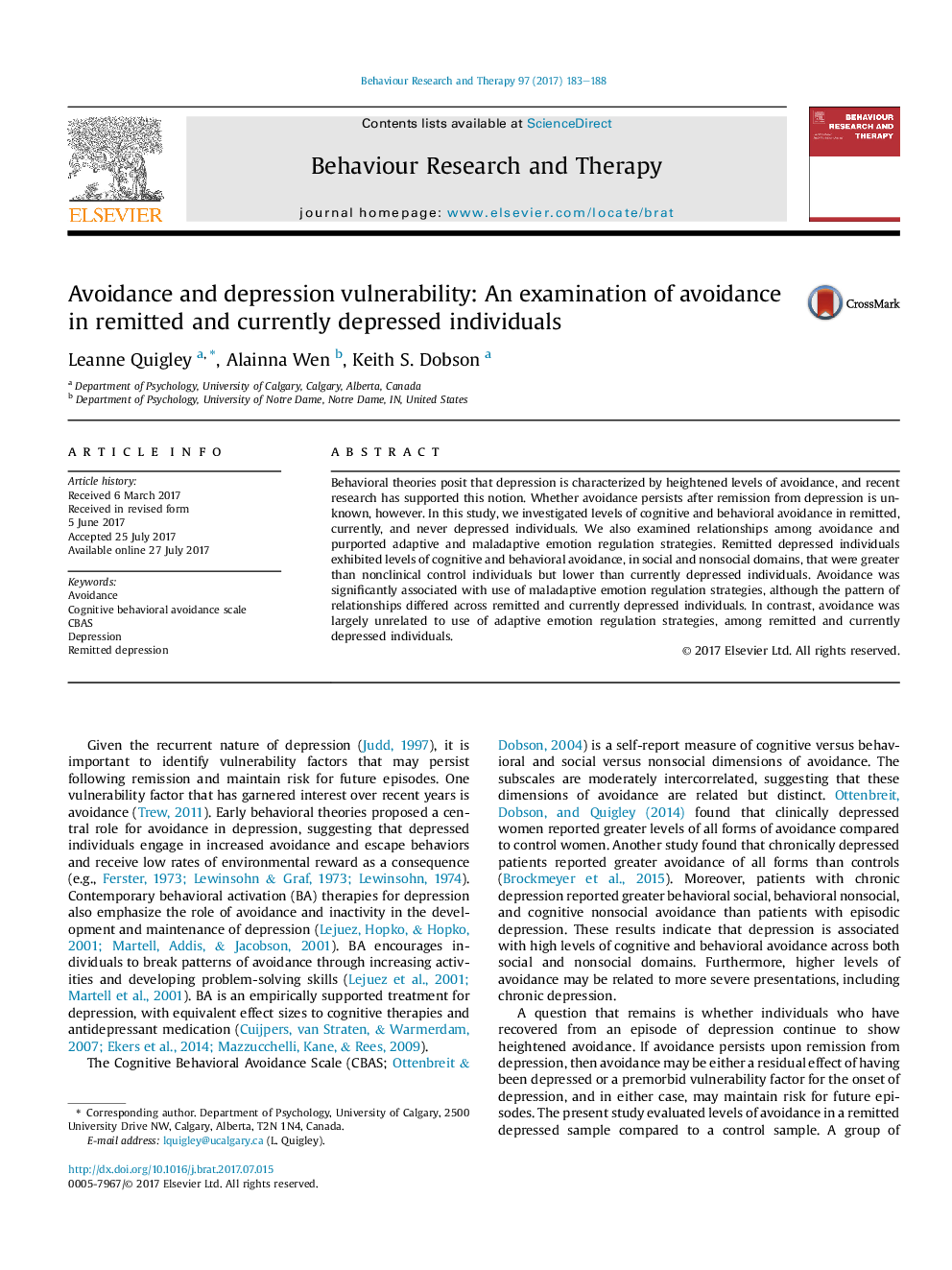| Article ID | Journal | Published Year | Pages | File Type |
|---|---|---|---|---|
| 5038178 | Behaviour Research and Therapy | 2017 | 6 Pages |
â¢Remitted depressed individuals reported greater levels of avoidance than controls.â¢Remitted depressed individuals reported lower levels of avoidance than currently depressed individuals.â¢Avoidance was significantly associated with use of maladaptive emotion regulation strategies.â¢Avoidance was largely unrelated to use of adaptive emotion regulation strategies.
Behavioral theories posit that depression is characterized by heightened levels of avoidance, and recent research has supported this notion. Whether avoidance persists after remission from depression is unknown, however. In this study, we investigated levels of cognitive and behavioral avoidance in remitted, currently, and never depressed individuals. We also examined relationships among avoidance and purported adaptive and maladaptive emotion regulation strategies. Remitted depressed individuals exhibited levels of cognitive and behavioral avoidance, in social and nonsocial domains, that were greater than nonclinical control individuals but lower than currently depressed individuals. Avoidance was significantly associated with use of maladaptive emotion regulation strategies, although the pattern of relationships differed across remitted and currently depressed individuals. In contrast, avoidance was largely unrelated to use of adaptive emotion regulation strategies, among remitted and currently depressed individuals.
